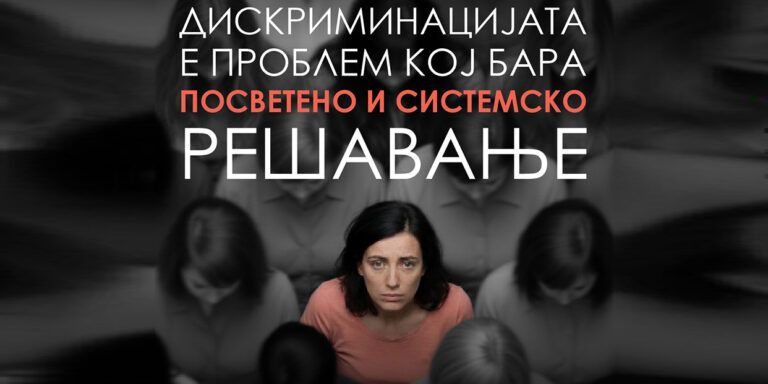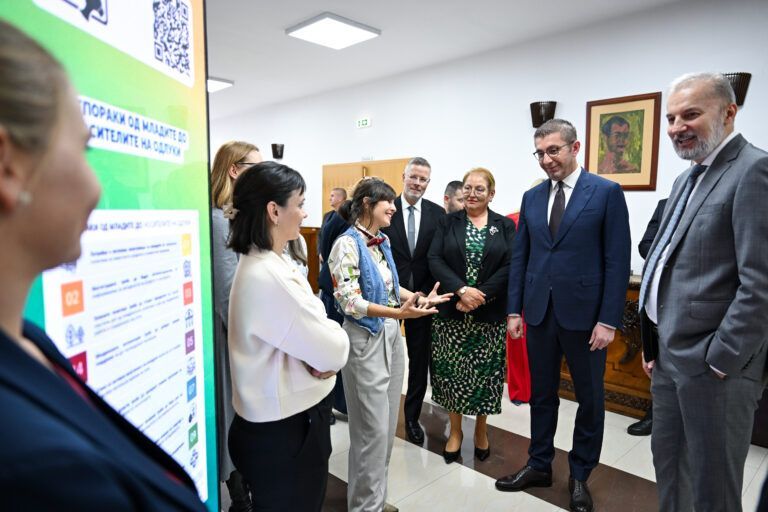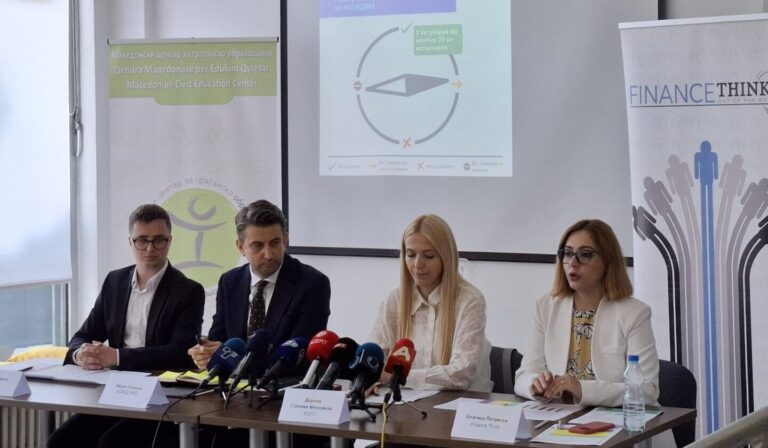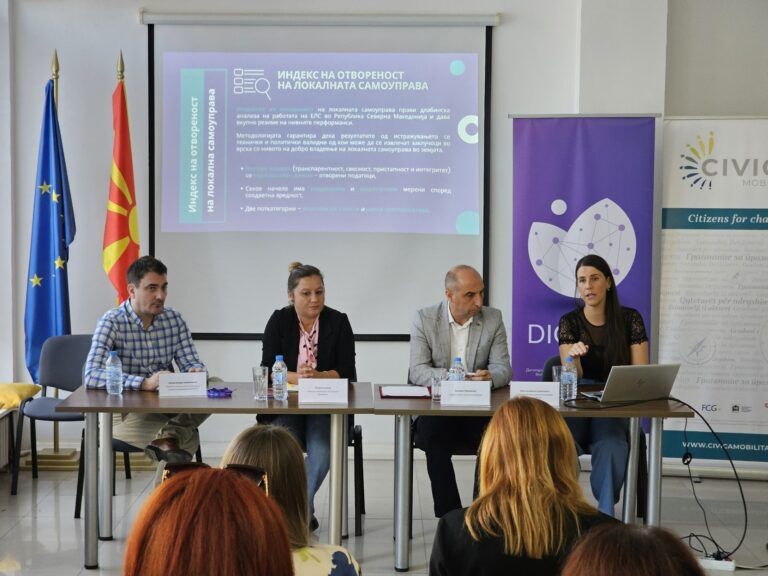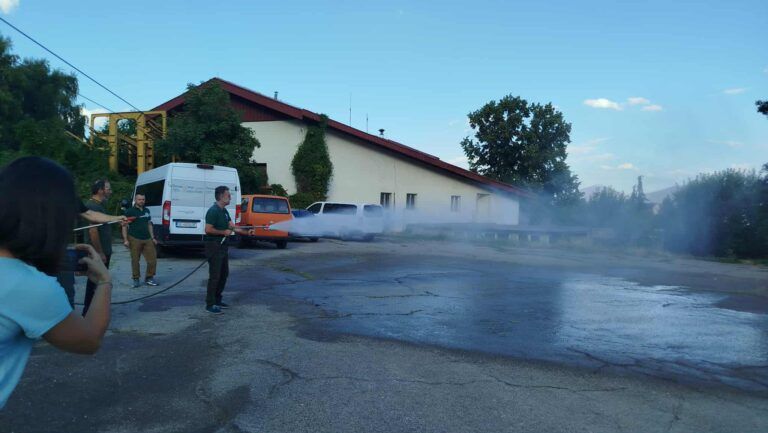“Textile Workers Stand Up Against Corporate Exploitation”
More than 35,000 Macedonian citizens work in the textile industry, with 7,000 employed just in Štip and the surrounding area. The work is demanding, conditions are poor, and wages are at poverty levels. Nearly 80% of workers are women.
They work in the factories because they have no other way to support their families and are often unaware of their labor rights. In 2016, one of these workers, Kristina, a young mother of three, became aware of the possibilities for civic action and teamed up with Goran, a local musician and activist. Together with several friends from Štip, they founded the group “The Silent Majority” to improve the lives of local textile workers.

In the former Yugoslavia, textile factories were state-owned and considered good employment, with above-average wages, benefits such as pension contributions, health insurance, and overtime pay. Today, the sector is dominated by small private companies, typically with around 500 employees or fewer, and working conditions have drastically changed. Research shows that “overtime” is a common unpaid practice, as many employees work up to 230 hours per month to earn their usual wage, which can be as low as €120. Many workers have no formal contract and are frequently dismissed without written justification. Paid leave is virtually nonexistent, while unpaid forced leave is common when factories have no production orders. With few other employment opportunities in places like Štip, workers are trapped in a lifestyle close to modern-day slavery.
What Did They Do?
Kristina and Goran realized that the textile industry systematically fails to protect workers’ rights and, in the worst cases, actively exploits their vulnerability. Together with friends, they began researching the problems to better understand the legal aspects and explore possible actions. They consulted local civil society organizations on how to help workers self-organize and work with specialized employee groups to learn about labor rights and how to defend them. The next step was building trust with textile workers and raising awareness of their rights as employees.
Factory owners and senior managers had no interest in improving conditions, benefiting economically from low wages and long hours. They opposed worker organization and awareness-raising efforts.
This meant activists had to proceed cautiously. They informed workers through informal conversations at factory entrances and invited them to social events in the town. For many, this was the first time someone showed interest in their working lives and the first time they openly discussed hardships. Activists also used theater and role-playing exercises to help workers understand their rights and the labor market dynamics.

Once trust and awareness were established, The Silent Majority began organizing forums where workers shared their experiences with poor employment. At some forums, they invited politicians, who had to listen to the workers’ concerns. This drew the attention of two lawyers who helped workers access free legal aid. Increased solidarity between workers in different factories followed, with 1,000 workers participating in the “Workers’ Coat March” in central Štip in December 2016, supporting two factories that had actually gone on strike.
What Support Did They Mobilize?
As an active citizen of Štip, Goran had experience working with the local civil society organization Community Development Foundation, which he used to advise and organize mobilization efforts. Kristina and Goran recognized the importance of analyzing the legal and economic aspects of the textile industry. Communication and meetings with the Clean Clothes Campaign, an international alliance dedicated to improving working conditions and empowering textile workers worldwide, were particularly helpful. They also needed financial support to cover legal expenses, research, and printing flyers and other awareness-raising materials. They successfully applied for a small grant from Civica Mobilitas.
What Changed? What’s Next?
Through their efforts to defend textile workers’ rights in Štip and other regional towns, The Silent Majority successfully placed workers’ rights and poverty wages on the political agenda. Both local and national politicians are now working to increase wages and ensure better enforcement of labor laws, leading to sanctions against certain factory owners for observed violations.
Their courageous actions also increased the involvement of international “watchdog” organizations in Macedonia’s textile industry. More importantly, workers themselves are encouraged to pressure factory owners through strikes to respect labor rights.

Kristina mobilized a large number of workers and together they established the organization “The Vocal Textile Worker”. She is mentored by the Helsinki Committee for Human Rights in Macedonia and aims to grow the organization to empower textile workers. Their plan is to strengthen solidarity by building bridges with other local, national, and international organizations, promoting volunteering, training members, teaching investigative and legal skills, and establishing a social enterprise to ensure sustainability.
Goran and his colleagues focus on improving the legal system in favor of workers and ensuring that labor rights remain high on the political agenda. They are working with the support of the National Democratic Institute on draft amendments to the Labor Relations Law.
Civica Mobilitas is a project of the Swiss Agency for Development and Cooperation (SDC), implemented by NIRAS from Denmark, the Macedonian Center for International Cooperation (MCIC), and the Swedish Institute for Public Administration (SIPU).
For more information about Civica Mobilitas, contact +389 2 3088 995 or helpdesk@civicamobilitas.mk



